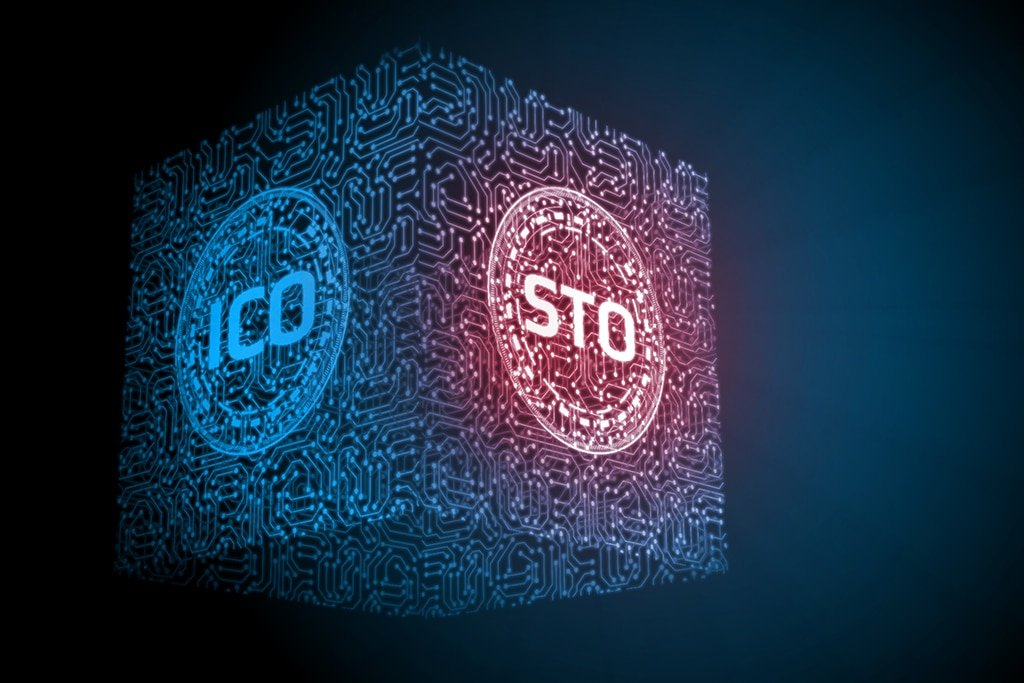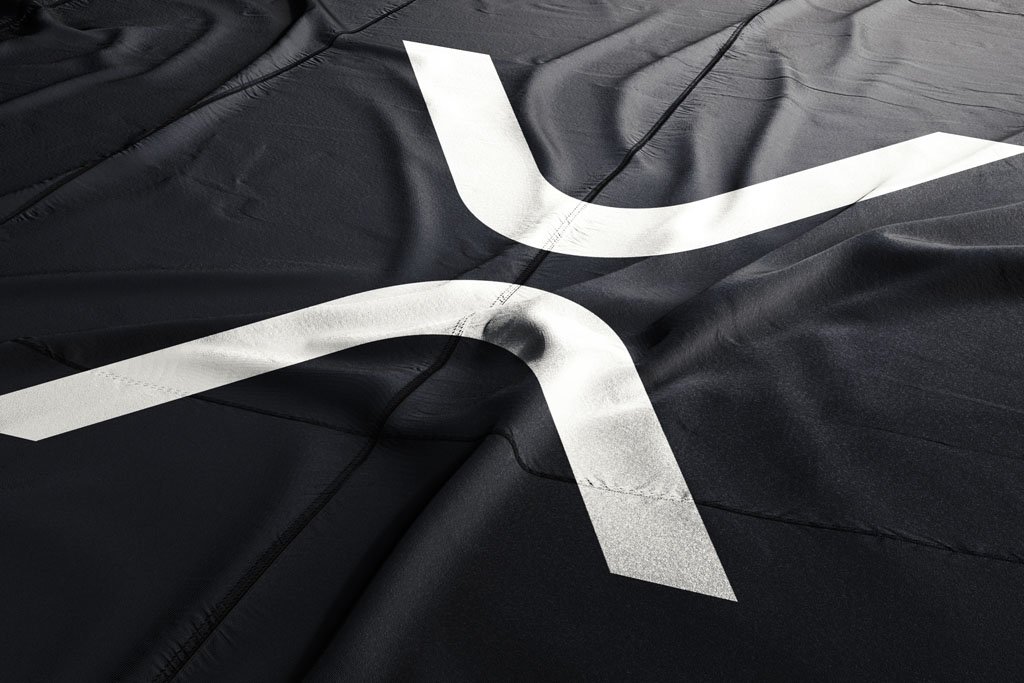This guide explains how to buy TOKEN6900, a new meme coin project with an attractive market capitalization. Learn how to join the ...
What Are Security Tokens and Security Token Offering (STO)? [Complete Guide]
Last Updatedby Teuta Franjkovic · 14 mins read
![What Are Security Tokens and Security Token Offering (STO)? [Complete Guide]](https://www.coinspeaker.com/wp-content/uploads/2019/01/what-is-sto-guide-420x280.jpg)
We’ve reviewed tons of data to set the record straight on Security Token Offerings (STOs) and finally clear up what’s new about Security tokens and STOs, how they’re different from ICOs and what potential is hidden behind this industry’s disrupter.
In October 2018, the owner-operator of the St. Regis Aspen Resort has concluded its Security Token Offering (STO), raising $18 million in the first equity Initial Coin Offering (ICO) hosted on the Indiegogo platform.
Asset management firm Elevated Returns, the owner of St. Regis Aspen, announced that accredited investors had purchased all $18 million worth of Aspen Coins made available through the sale, bringing Indiegogo’s first security token offering to a successful conclusion.
Utility Tokens, Security Tokens… What’s All That About?
What Indiegogo did, raised many questions. First of all, what is a security token and then what are its main advantages?
Unlike utility ICO tokens, which (at least purportedly) serve as coupons for a product or service, security tokens represent investment contracts. In this case, each Aspen Coin represents a share in a single-asset real estate investment trust (REIT) that holds the $18 million in St. Regis Aspen equity made available through the STO/ICO. Since securities offerings are regulated by the SEC, the sale was restricted to accredited buyers.
Security token is a new financial instrument that has emerged basically because of two needs: stronger regulation and the separation of speculation from the utility. In simpler terms, security tokens are cryptographic tokens that pay dividends, share profits, pay interest or invest in other tokens or assets to generate profits for the token holders. This takes care of the liquidity issues.
Previously, with traditional paper backed assets like company’s shares or bonds or real estate, liquidity was a problem. However, cryptographic representation of all these things in a token form, can take care of that issue.
Since its inception, ‘Security Tokens’ has been a matter of big debate and controversy in the crypto market. Currently, Security Token Offerings make a very small percentage in the crypto funding activities. However, some experts believe that Security Tokens will help to trigger institutional investor participation in the future.
Is STO the New ICO?
To simplify, one could define a formula: “ICO + Legal Compliance = STO”

- Photo: Shutterstock
In a traditional ICO, tokens or coins are offered by companies for purchase as a form of crowdfunding. Purchasers can exchange their cryptocurrency for a specified quantity of the tokens on offer. It’s a little bit like buying shares but when you buy a share in a company.
Voting rights would be a good example here as well as shareholder dividend payouts. When you buy tokens in an ICO, you don’t get any of those rights or obligations. Your new “utility tokens” give you access to a specific network, platform, or service.
Participating in a Security Token Offering is very similar to participating in an ICO. You can purchase tokens during the offering that you can then trade, sell, or hold. However, since security tokens are actual financial securities, your tokens are backed by something tangible like the assets, profits, or revenue of the company.
Security Token Offerings (STOs): Regulatory Landscape
A lot of lawyers and financial specialists are cashing in on various security token projects simply because the laws affecting securities are quite stringent and, to some extent, unclear.

- Photo: Unsplash
In 2019 the blockchain industry will figure out if there is a way forward from the SEC’s informal guidance that most token offerings will have to be registered or issued under an exemption from registration. Furthermore, a wild card has been thrown into the regulatory mix with the recent introduction of a new bill amending the Securities Act to define cryptocurrencies as not being securities so long as they are utilized on a functioning network.
The Swiss Financial Market Supervisory Authority (FINMA), in February 2018, issued a set of guidelines that outline how it will respond to inquiries from Initial Coin Offering (ICO) organizers using financial market legislation, providing some clarity for those who choose to participate in ICOs.
Indicating that transparency is of the utmost importance, FINMA said that it will respond to ICO inquiries on a case-by-case basis, as not all ICOs may not always be subject to existing regulatory requirements. Currently, there is no specific ICO regulation, and there are no existing legal precedents or case law to which ICOs are specifically subject. However, despite Switzerland’s pole position as ‘Crypto Nation’, the regulatory framework for security token projects remains unclear.
The People’s Bank of China banned ICOs in 2017, and then went ahead to ban security token offering (STO) businesses as well. In December 2018, China’s Central Bank reported its decision concerning security token offerings, noting that they are illegal in the country.
The bank’s deputy governor Pan Gongsheng then appeared at a summit in Beijing and there, he and discussed there the “illegal” financing activities that have been effectuate with STOs and ICOs and that they are “still rampant in the mainland despite a nationwide clean-up of the cryptocurrency market last year.” He also added that without the government’s intervention, it would have impacted the country’s financial stability.
Also, the deputy secretary of the Thai Securities and Exchanges Commission (Thai SEC) has declared that Thai-related Security Token Offerings (STOs) launched in an international market break the law. At the moment they still have not decided whether STOs fall under the SEC Act or the Digital Asset Act, but it depends on the STO’s conditions and the details in its white paper.
Best STO Destinations

- Photo: Pixabay
Swiss city Zug, also known as the “crypto valley,” has been a hub for blockchain developers since early 2017. Swiss regulatory authorities were some of the first in the world out of any country to clarify how ICOs and STOs operated from a legal perspective. There are, however, no current STOs in Switzerland, but given its already-proven track record with established cryptocurrency projects, it seems likely that the country will become a hub for the tokenized security space in the next few years.
One of the best countries in the world with the most hospitable legal environments for the security token industry today is definitely Malta where many STOs are issuing and holding their token offerings with Maltese exchanges like LXDX planning to compliantly launch their own STO.
In certain jurisdictions, navigating the security token offering regulation may seem like a minefield. However, Malta’s Financial Services Authority (MFSA) offers crypto fund managers and token issuers clear and advantageous security token offering regulation, expediting the CIS licencing process for crypto funds.
Another country that launched its own security token offering platform is Estonia. As of November 12th 2018, the B2BX cryptocurrency exchange has received approval for a regulatory license from the Estonian Financial Intelligence Unit (FIU). The license allows for B2BX to compliantly offer the trading of cryptocurrencies in Estonia including crypto-to-crypto trades and in the future, crypto-to-fiat pairings.
Although there are still some pressing questions surrounding security token offerings (STOs), Canada boasts a stable legal system and the prospects of licenses for exchanges dealing with tokenized securities seems right around the corner.
Compliance costs in Canada are currently quite high much like the United States, and although it does have some of the strictest regulations when it comes to securities, it seems likely that STOs might fall under the exemption clause of current regulations in place for crowdfunding.
Is it Security or the Utility Token: XRP Case
The SEC and FINMA have broken down tokens into two broad categories: Utility tokens and Security tokens.

- Photo: Shutterstock
Because most of the ICOs are investment opportunities in the company itself, most tokens qualify as securities.
However, if the token doesn’t qualify according to the Howey test ( a test which will be used to determine whether a certain transaction is an investment contract or not), then it classifies as utility tokens. These tokens simply provide users with a product and/or service. STOs as an alternative to utility token offerings combine the reliability of traditional finance with the versatility of crypto. Aside from being a more secure way to prove equity ownership, blockchain and now STOs are already beginning to overhaul financial systems as we know them.
The words “utility token” have acquired a sour taste, and for good reason. Over the past year, it has been badly misused by ICOs in search of easy money.
The fallacy, as SEC officials have made clear since 2016, is that almost every case the “utility” is on a non-existent platform.
Unlike most ‘utility tokens,’ XRP already has almost all of the functionality it needs. Unlike most ICOs, XRP isn’t intended for anything other than a system for payments and settlements—the platform is already functional. Anyone can use XRP for purchases or payments, and —after the xRapid launch—XRP is also in use for cross-border liquidity.
James Park, in a report for the Lowell Milken Institute, refers to it as the ‘Hinman Paradox’: “For a utility token to be distributed freely without regulation by the securities laws, it must be functional. But many utility tokens are only functional if they are distributed widely enough so that a decentralized system arises.”
After several lawsuits filed against the company claiming XRP to be a security, the blockchain startup issued a clarification on how its brand differs from its XRP digital tokens. The U.S. Securities and Exchange Commission has been reviewing all the claims from the investors, and still remains uncertain over the status of XRP. To learn more about XRP coin, Ripple company and their innovative solutions, please check out our awesome guide.
Potential and Advantages of STOs
Security Token Offering, or STO is expected to grow up to $10 trillion by 2024. The issuance of security tokens is much cheaper compared to other forms of securities due to the fact that they are operated on decentralized markets. This also means that they attract lower legal and accountancy fees, among other costs.
Issuing securities via programmable code aka smart contracts on the blockchain comes with massive benefits for businesses that plan to tokenize their company’s equities.

- Photo: Pixabay
One of the benefits is Legality. Security tokens are regulated financial securities, the same way as stocks are. People dealing with securities don’t have to worry about transparency or regulations.
Second one is Functionality. The same way, while traditional utility tokens cannot act as securities, security tokens CAN act as utilities. In other words, with the help of smart contracts, issuers can choose to use the security tokens as a payment method on their platform, network gateway, voting rights, loyalty programs and more.
Liquidity is also beneficial. With security tokens, issuers have got total control over creating more liquidities. This can be achieved by allowing not only international investors but also listing the securities on exchanges.
Securitizing new assets is also one of the benefits. Tokens are unique in that that they can securitize various forms of assets including both tangible and intangible assets. This has already had some success, with the recent auction of Andy Warhol’s 14 Small Electric Chairs, an iconic contemporary art piece featuring an electric chair, allowing art lovers to buy a share in the painting.
The Security Token Ecosystem
We at Coinspeaker chose biggest players involved within security tokens.
Issance Platforms:
Tokeny: Tokeny is the Compliant Tokenization Platform. The Luxembourg based fintech is dedicated to providing an institutional grade, secure end to end platform, allowing the sale and management of tokens during and after an ICO or STO.
Securitize: Securitize is a full stack technology & services platform with powerful features and specialized tools for both investors and issuers.
Securrency: Securrency creates interoperability among blockchains and legacy systems with associated Decentralized Investment Banking Services (DIBS).
GoSecurity: GoSecurity is your guide towards a successful security token offering. We offer a highly scalable and secure platform for launching your security token. We provide fully compliant and customizable work-flows for KYC, AML and accreditation.
Exchanges:
Gibraltar Blockchain Exchange: The Blockchain Based Stock Exchange (GSX) aims to be a world-leading institutional-grade token sale platform and digital asset exchange. Built upon principles of decentralisation and community consensus.
Blocktrade: Blocktrade brings blockchain-based technologies and crypto assets to a unified and connected marketplace. It is Swiss guarded with the highest security and integrity features, performance driven, high volume and market-depth that meets stringent statutory compliance.
BlockExMarkets: A London-based brokerage where you can buy, sell and exchange crypto, FIAT and participate in ICOs. With a user-friendly interface that puts the customer in control and supports a variety of secondary markets and fiat-to-crypto and crypto-to-crypto instruments. The ICO marketplace features a selection of vetted ICOs available to all. Participants can purchase ICO tokens using either crypto or fiat.
VrBex: VRBex is the premier U.S. based exchange for investors seeking to exchange or trade cryptocurrency and to invest in crypto-assets such as security
tZero: tZERO’s blockchain technologies aim to revolutionize the market and fix the inherent inefficiencies of Wall Street so that financial processes are less beholden to traditional, institutional market structures.
Bankorus: The world’s first encryption wealth management platform that provides high-net-worth customers with a complete solution for digital asset allocation. Buying and selling digital assets in the only global market with a smart contract platform based on blockchain technology, compliance issues will no longer be a hassle.
Custodians:
SIX Digital Exchange: Switzerland’s stock exchange owned and managed by SIX announced on 6 July 2018 that it is building a fully integrated trading, settlement and custody infrastructure for digital assets.”
DX.Exchange: The Estonia-based fintech company is the first non-CFD crypto exchange to offer stock trading that are tokenized on the blockchain. Publicly listed companies like Google, Facebook, Intel and Apple will be listed on DX.exchange. This is the first time securities can be purchased directly with popular cryptocurrencies like Bitcoin.
Currency.com: The Currency.com platform revolutionizes cryptocurrency investment by enabling anyone with Bitcoin or Ethereum to trade financial assets, commodities and indices from the world’s biggest companies – without putting their crypto holdings under price pressure or moving to fiatr and other partners on Platform development.
Coinbase: Coinbase is a global digital asset exchange company (GDAX), providing a venue to buy and sell digital currencies, as well as send information about those transactions out to the blockchain network in order to verify those transactions. Coinbase serves as a wallet, too, where the digital currencies can be stored.
Vo1t: Vo1t is a leading global custodian of blockchain assets. They have combined cutting-edge system design with cybersecurity best practices to create the world’s most secure cold-storage vault.
BitGo: BitGo is the market leader in institutional-grade cryptocurrency investment services. BitGo provides institutional investors with security, compliance, and custodial solutions for blockchain-based currencies.
Swiss Crypto Vault: Swiss Crypto Vault AG was established in strategic partnership between Swiss Gold Safe AG and Bitcoin Suisse AG to provide the combined expertise in storage and crypto asset handling.
Distributors:
Token Market: Security Token Market is the largest worldwide repository of past, present, and future security token offerings.
Security Token Network: STN is accelerating mass adoption by supporting and connecting hand-picked STO projects with ecosystem key players and investors.
Infrastructure:
Smartlands: Smartlands is a worldwide Platform for tokenization of real economy assets by issuing asset-backed tokens (ABT). Use a ready, secure and proven solution developed by Smartlands. In cooperation with Stellar and other partners on Platform development.
Rialto Trading: Rialto Trading is dedicated to delivering trading tools to the fixed income market. Rialto has developed three products that provide different avenues to sourcing liquidity that can be used alone, or combined to lever results.
So What?
The truth is, STOs allow companies to stop beating around the bush and directly sell tokens that function as securities. Investors gain access to traditional security benefits pre-determined by the issuer, like profit sharing, equity stake, or voting rights. Many ICOs had very narrow applications as their tokens could only be used in niche networks. Security tokens create a wider appeal, allowing investment from people who believe in the project, but would not necessarily use the network themselves.
Pepe Coin surged in popularity after its 2023 launch. This article covers market trends, price forecasts, technical signals, and h...
Looking for the best play-to-earn crypto games in 2025? Start with fan-favorites like Axie Infinity and Harry Hippo - and discover...